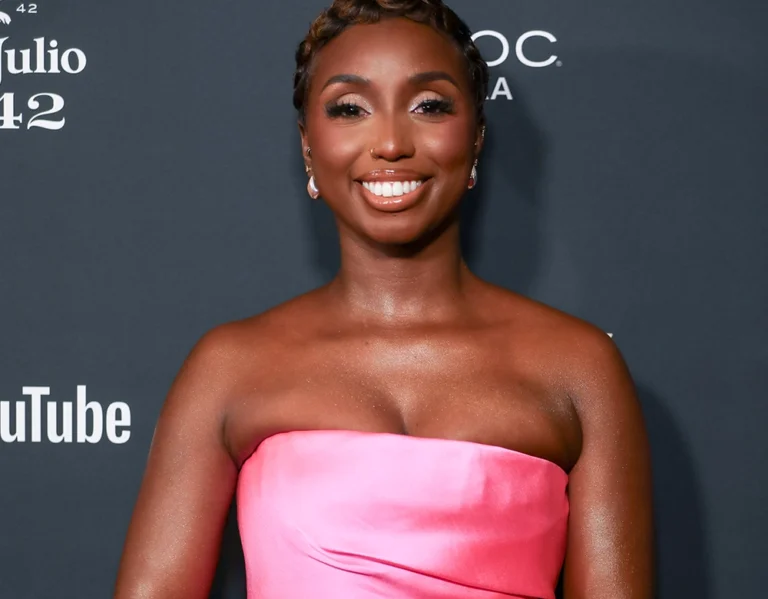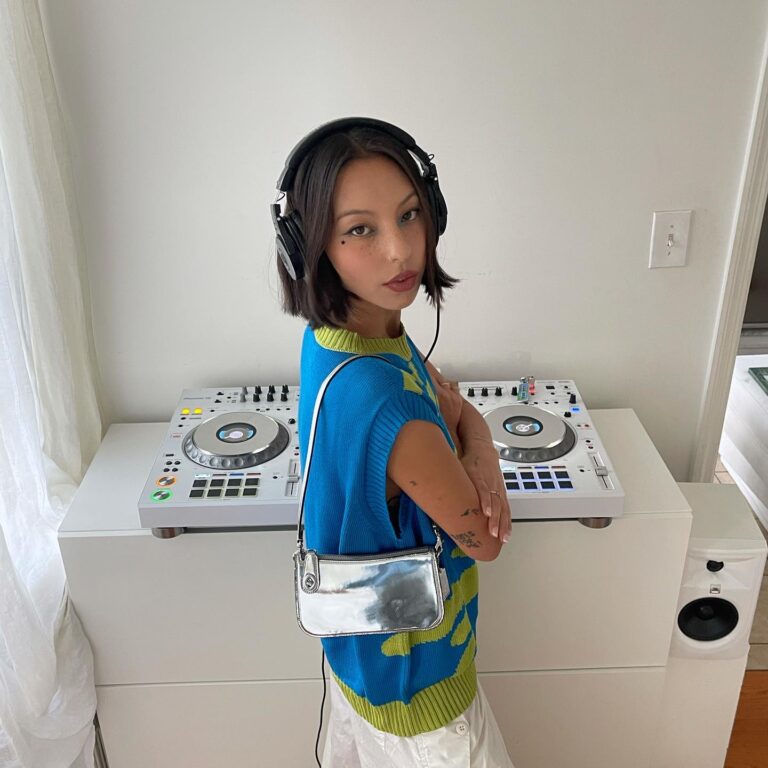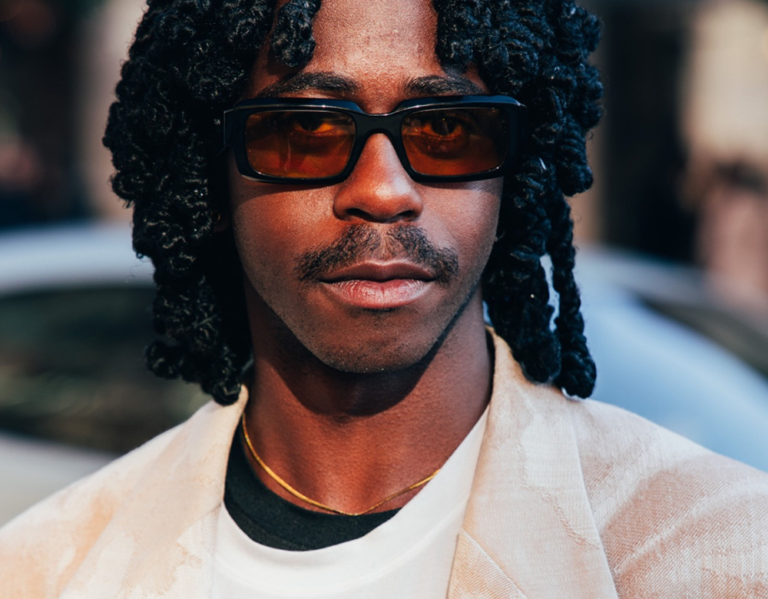Nellie Eden, Creative Director, London
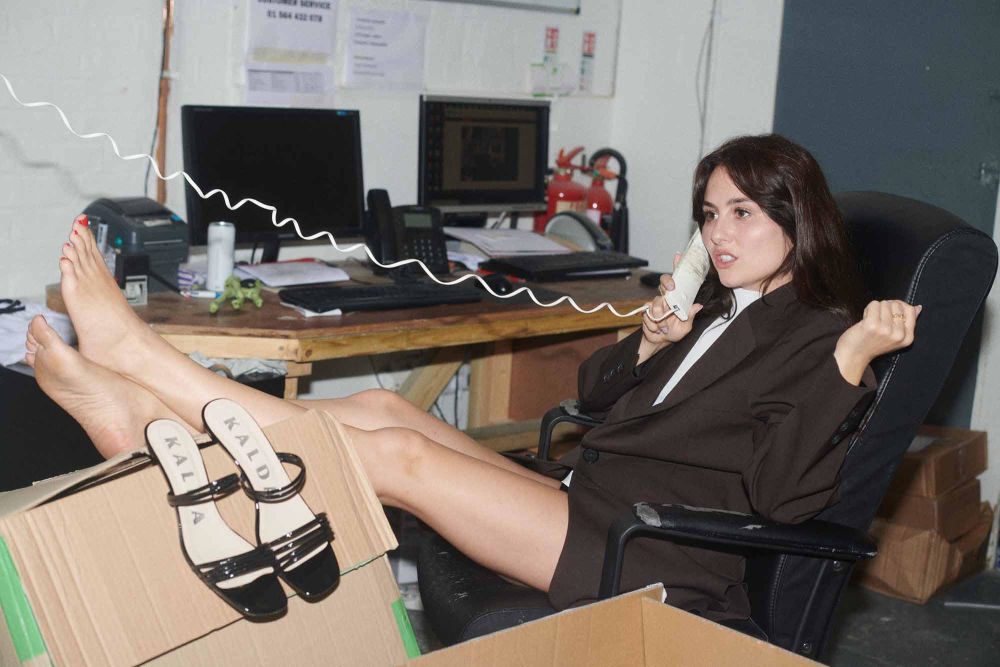
Hey Nellie, can you introduce yourself?
My name’s Nellie Eden; I’m 33 years old, born and raised in South London, in Blackheath, and I’m a creative director.
It’s a title that’s often shrouded in ambiguity, especially as people take so many different routes to get into creative direction. Can you demystify that a bit and shed some light on how you got to where you are?
My background is as a writer – I was on the circuit in London writing for every fashion title you could think of as a freelance journalist. Then I set up my own agency [Babyface] with a friend when I was about 23/24, so in 2013/2014. There I learnt that I wanted to tell stories visually, and that I was better at telling stories visually than I was by the written word. I always excelled academically at school but was very dyslexic, and actually my dyslexia positively manifests as a better emotional and visual interpreter.
They say that around 25% of CEOs are dyslexic. I think the argument is that you’re problem solving from quite a young age.
My friends would say I’m like a white rabbit person, I can pull a rabbit from a hat. I’m highly productive, highly proactive. I recognise that I can do in an hour what most people can do in a few days. But then what people can do in a year, I would never be able to achieve. I work on a really different timescale: short, sharp bursts, fidgity, enthusiastic. If there’s a problem at hand I’m galvanised.
How does your background in writing and storytelling inform your work as a creative director?
I love language and most people that know me would say I’m verbose. As a creative director, I often start with writing something out – a piece of creative writing, a paragraph or two around the concept and the idea. I don’t often begin with image research. I have to begin with words.
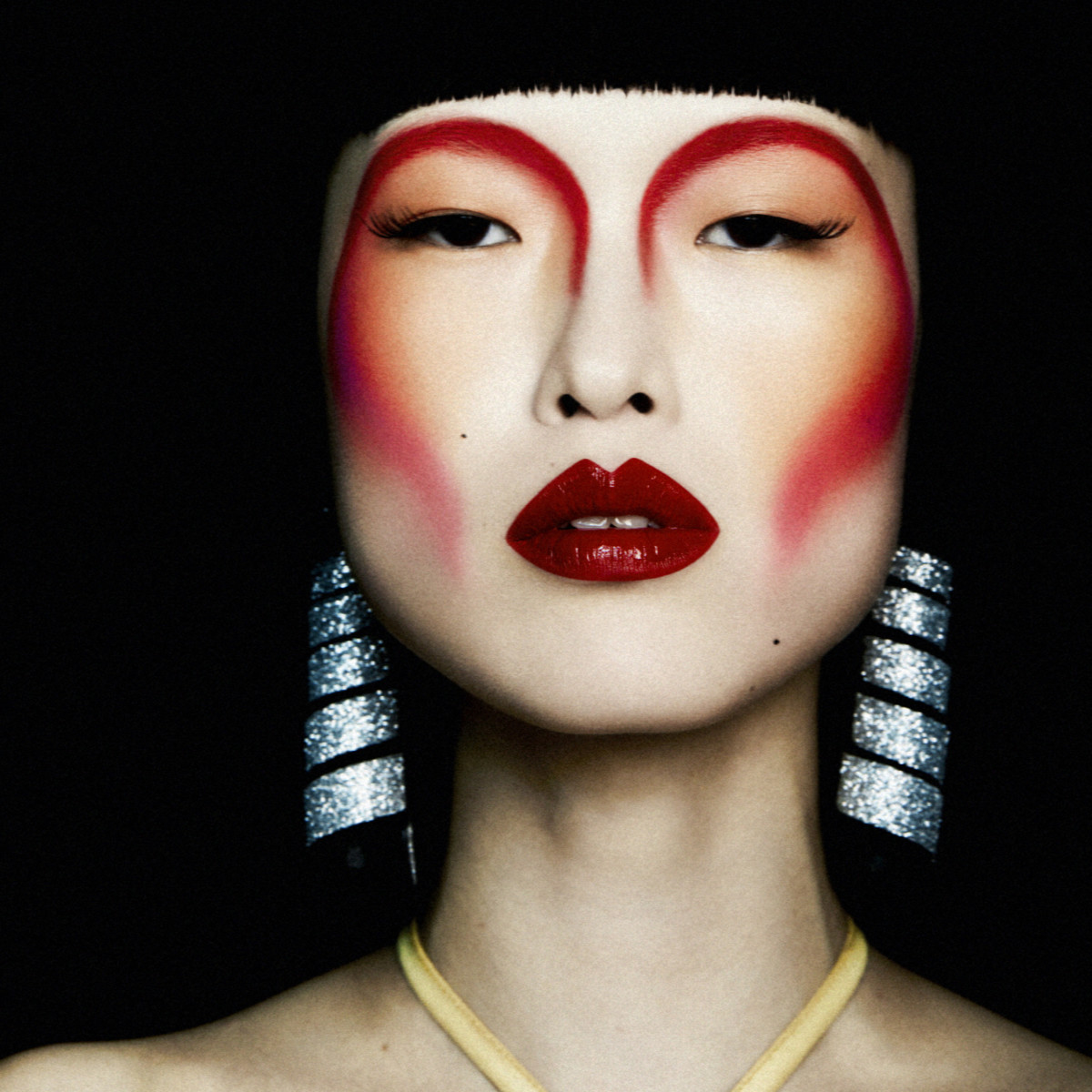

So it’s always a conceptual approach?
Very conceptual. I’m not someone that’s like ‘art for art’s sake’. I never want to shoot something because I think it looks good. I will never come at a story or a project from that point of view. That’s not to say that it’s wrong, I’m just not interested so much in trend-led stuff.
From there, what does your day-to-day look like?
I’m working really closely with a photographer or an art director and I will help them articulate a shared vision. Then, as a creative director, I’m often in charge of identifying the rest of the team – this director of photography, this artistic director. I’m working with production to get together a harmonious team for hair, makeup, wardrobe, styling. You’re very much on the project, from pre to post-production.
Do you thrive working collaboratively?
That’s my comfort zone – to work in a pair. For a long time I worked with Isamaya Ffrench. She’s obviously this genius polymath and I’ve learnt so much from her, but she too, I think, likes that sounding board. And that’s not about insecurity. For me, it’s an expansion. I understand why, in old school advertising terms, you’d have a copywriter and an art director. I need somebody that has a shared taste but a different discipline to work next to me.
"I was brave; I had nothing to lose. I think that made me feel like I didn't need anyone else. I didn't really need the stamp of approval... I didn't need a title."
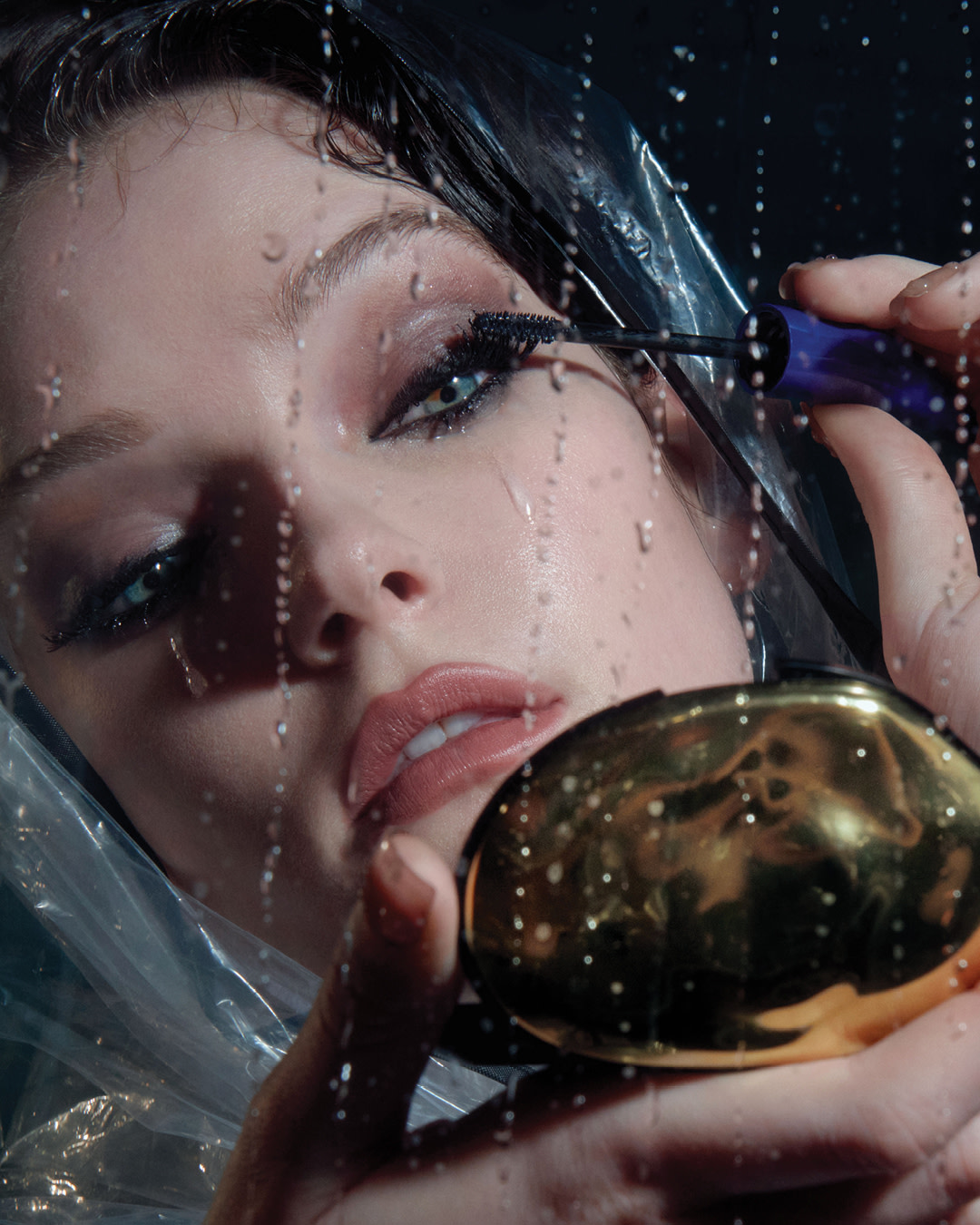
How did running your own business shape you and your career choices?
Learning to run a business from a very young age on the job has definitely shaped me more than anything. Having to understand revenue and overheads and tax has been really formative, because I quickly understood that despite what people might tell you, working for yourself can be advantageous and incredibly empowering. I’d found freelancing as a journalist quite lonely and underpaid. I realised I could run my own business that was filling the space old-fashioned ad agencies and creative agencies had traditionally taken up. I could bring my journalistic skills and my taste and my sensibility into projects, while also being remunerated properly and learning how to run a business. And at that age I was brave; I had nothing to lose. I think that made me feel like I didn’t need anyone else. I didn’t really need the stamp of approval from a magazine. I didn’t need a title at a media company.
Are you someone who gravitates away from your comfort zone? From writing to running Babyface to editing Dazed Beauty, you’ve not been afraid to leave successful ventures and move on to new experiences.
I think that’s my lack of attention to detail, and that might confuse people when you think of a creative director. I can be really focused if I’m in on a retouch or an edit, but I don’t sit and scrutinise myself very heavily. I used to see that as a flaw, and now I realise that’s the ability to adapt and flex and not sweat it too much. I don’t feel bad about work I did that I don’t like, and I don’t feel like I’m striving towards working with this person or this brand. I don’t manacle myself to those superficial landmarks. And there’s self-assurance that has come with age. I really don’t feel the need to prove myself.
There can be an invisible architecture within the fashion industry that makes people feel like you can’t speak to this person or you can’t move around with this person. Like everyone has to strive towards shooting Miu Miu or Prada. I think those are really commendable goals, they’re just not ones I share. I’m more interested in getting on with someone, being inspired by whoever I’m working with, and doing things that feel fun and joyful. I think that’s what pushed me more into beauty – the industry is a lot more fluid. I can make mistakes and try things out and fail and succeed. I don’t feel like anyone’s watching me to the same degree. It’s a much less exhausted space, so I feel free to move around in it.
But to answer your question, I don’t feel a way about having worn lots of different hats. I used to go and meet agents and they’d say to me, ‘You know what you should do? You should find a photographer you love and just keep shooting with them.’ I thought, ‘Wow. That’s the most 90s advice I’ve ever heard.’ If I hadn’t been so bolshy I might have internalised that. The industry does not favour the young creative who’s out of pocket and the more we talk about that the better. Working away doing the [unpaid] editorials until you get the Gucci campaign? There has to be another way through the industry. I look at people like Lotta [Volkova] or Marili [Andre] or Carlijn [Jacobs] – Marili’s never been signed, Lotta’s this supernova superstar who’s totally exploded the definitions of what a stylist can be, and Carlijn’s always just done her own thing. So I have other women in the industry that I look to and I’m inspired by. I feel comforted by their organic approaches to setting up a career on their terms.

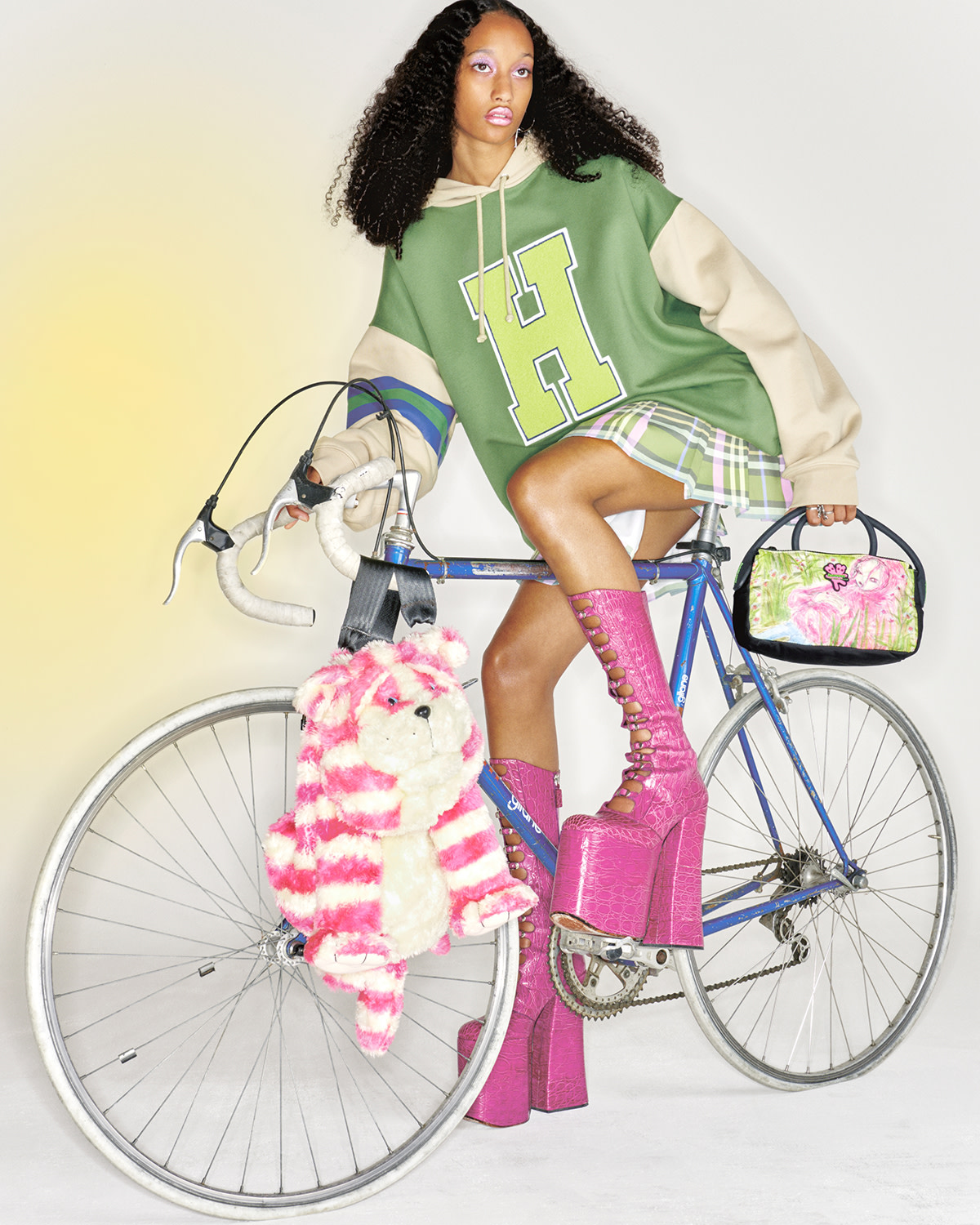
That’s refreshing, especially in fashion and beauty, which can be status-driven and self-conscious and very neurotic.
It can be very outward-facing and I’ve worked hard at creating an inner compass. That would be my biggest recommendation to young creatives. This sounds absolutely mental, but I never compare myself to other people in the industry. I’m also not hypercritical of other people’s things. Whether we have the same tastes or not, whether they’re interested in the same books and art, I have a great appreciation for other people’s work and craft. I know what I don’t like and I know what I do like, and I think if people spent more time informing their own tastes, it would save themselves a lot of hurt.
You really can see your taste throughout your work, even though it encompasses a wide range of aesthetics.
Someone said to me it’s like a mix of pornography and advertising and beauty, very feminine, very youthful, very alive. Human, and I guess deeply rooted in a story. That doesn’t have to be really profound, I just think a story is the only sensible place to start when you’re making something.


Looking back to your early days in the industry, do you feel like going to uni helped you get started?
No, I was just clubbing! I went to Sussex and I studied English Literature. I got into much better universities, but I went there because my twin brother was going. Halfway through my first year I was miserable and came back to UCL saying, ‘Will you take me back? I know I’ve done six months at Sussex but I hate it.’ I almost came home, and I’m glad I didn’t because I met the woman I did Babyface with at Sussex. But did it help me? I can read a book in a day if I have to and it was very political, so I learnt how to vocalise my ideas better. But no one’s ever asked me what I got, no one’s ever asked where I studied. If I had any life goal it would be to be back in education at some point. I would love to go and do an MA in Literature, but I can’t justify that right now.
Did you do internships?
I did loads of internships. I interned at Marie Claire, which wasn’t the coolest place to do an internship but I met a lot of people. I was doing the night shift – I was clubbing. That’s where I met all of the designers and creators and art directors and everybody I know now. That’s the blessed insider truth. I did not have to beg, steal or borrow in terms of contacts when I came to a point of taking myself seriously because I knew everyone from going out with them, and I’m so grateful to my younger self for doing that because I don’t go out anymore at all.
How important is it to you to be always looking over your shoulder at creatives coming up?
I feel like I’m honestly an eighth of the way through my career and I’m ready to have like seven other careers ahead of me. So I feel very connected to a younger generation of creatives, in my personal life too – not just to share on Instagram and not just as a mentor, as friends. I’m constantly learning from them. I feel as fortunate to have met those people as I do Isamaya, and I never want to stop being around people who are a decade younger than me. I constantly want to remain like a playdough. I want to change my mind about things, have my mind changed, feel differently. I don’t ever see myself operating from a glass box office in a corporate environment. I’m not looking to calcify into my final form, wrapped up in a job title in a really well-paid position. I want to stay close to the young people in my life who are in the field, doing the work and changing the industry in ways that I don’t think my generation felt empowered to do.
"I constantly want to remain like a playdough. I want to change my mind about things, have my mind changed, feel differently... I’m not looking to calcify into my final form."
Credits:
Image 1 + 2: For Browns Beauty Launch with Carlijn Jacobs and Lucy Bridge
Image 3: Byredo x Charlotte Wales waterproof mascara with Isamaya Ffrench
Image 4 + 5: Horoscopes For Heaven by Marc Jacobs with Marili Andre
Image 6: For Browns Beauty Launch with Carlijn Jacobs and Lucy Bridge
Image 7: Byredo Lipsticks campaign with Hugo Comte
LATEST THAT MAY INTEREST YOU


